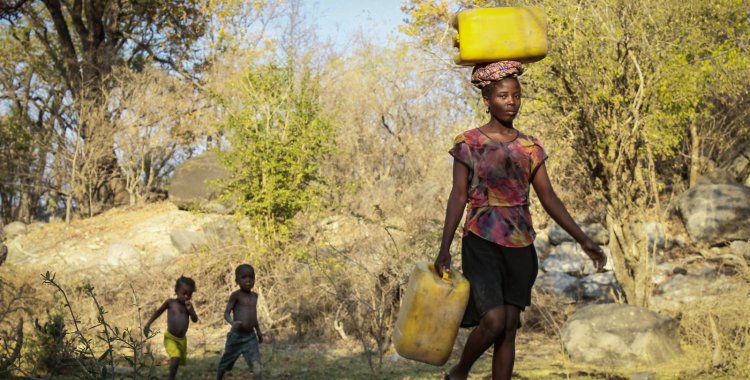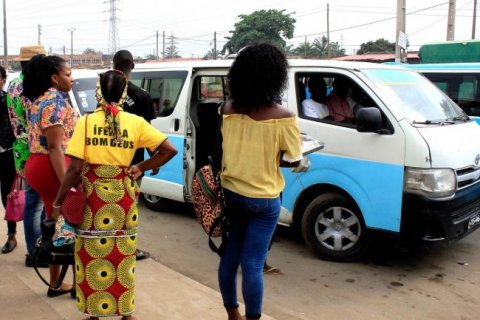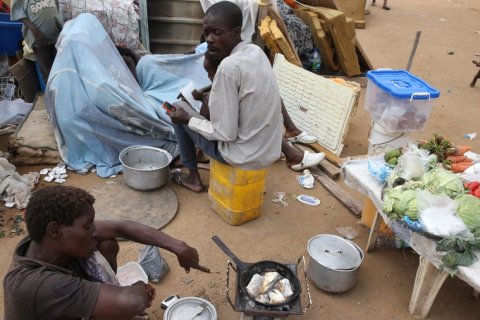Domingos Fingo, who has been working in the field, together with Amnesty International and other organizations, told Lusa by telephone that the drought "is creating extremely embarrassing situations for the pastoralist families, since they are vulnerable".
The NGO's executive director criticized the government's position, accusing it of not guaranteeing a "rational use of the waters."
"The problem is that the onset of famine is aggravated insofar as there are no public policies on the part of our Government that can guarantee the rational use of rainwater. In fact, there have been cyclical droughts, but it doesn't mean that for a whole year there is no rainfall", he pointed out.
In this sense, Domingos Fingo refers that, "if there were concrete programs" from the Government for the use of "all rainfall waters" and "phreatic waters" through dams or other ways to retain the waters.
"Obviously there would be the possibility of family farming, and if we had family farming, we would never have such a negative impact of this drought.
For the ACC director, the "social hecatomb" that is being experienced in southern Angola could have been avoided through these mechanisms, which would enable the "irrigation of community gardens and the strengthening of fruit farming.
For Domingos Fingo, the government should declare a state of emergency for the southern region of the country.
"What I would like, very sincerely, is that the Angolan executive declares a state of emergency to enable the recovery of these families," he pointed out, adding that the situation will worsen "until September or October.
"At this moment the government should create all the conditions to guarantee, at the very least, one meal a day to each family," he added.
The priest and sociologist Jacinto Pio Wacussanga, told Lusa that there is a perspective of being "running after the damage".
"The droughts became recurrent in 2012. Before we had a drought every seven years, every ten years. Now we don't. Now one year we might have some rain, or else we have drought. So since 2012 that people lost their food reserves, and that is the reason why we are in this situation," he said, also to Lusa.
Jacinto Pio Wacussanga stressed that "it is the obligation of a government to fulfill the so-called human right to adequate food".
For the sociologist, native of Huíla province and who has been daily with shepherds and their families, the executive "still doesn't have a very clear strategy" in this aspect, having affirmed that the National Strategy of Food and Nutritional Security is "maladjusted for the current situation".
In a report released Wednesday, Amnesty International said that millions of people are at risk and many have already abandoned their homes in southern Angola due to the drought aggravated by climate change that is hitting the region.
According to the World Food Program (WFP), the lack of rain between November 2020 to January 2021 has resulted in the worst drought in 40 years.
Namibian authorities registered a total of 894 Angolans in the Omusati and Kunene regions in March 2021, following reports of large numbers of pastoralist families from Huila and Cunene provinces abandoning their homes in search of refuge in the neighboring country's north.
In May 2021, Angolan NGOs reported that more than 7,000 Angolans, mainly women with children, had fled to Namibia, and the number was still rising.
The Intergovernmental Panel on Climate Change (IPCC) noted that "the frequency and intensity of droughts has increased in some regions," including in southern Africa since pre-industrial levels due to global warming and that "the frequency and intensity of droughts are projected to increase particularly in the Mediterranean region and southern Africa."
In May 2021, the World Food Programme (WFP) estimated that six million people in Angola had insufficient food, mainly in the south of the country, and that more than 15 million were using crisis- or emergency-based coping strategies, such as saving or reducing non-food expenditures.







